2024 Event

Indiana Best | Saurabh Biswas | Markus Brinkmann
Linda Chelico | Akshara Dash
Michael C. Levin | Rachel Loewen Walker
Curtis J. Pozniak | Linzi Williamson
Spencer Krips
Thank you to those who joined us for the live TEDxUniversityofSaskatchewan 2024 event.
See below for the 2024 talk and performance recordings!
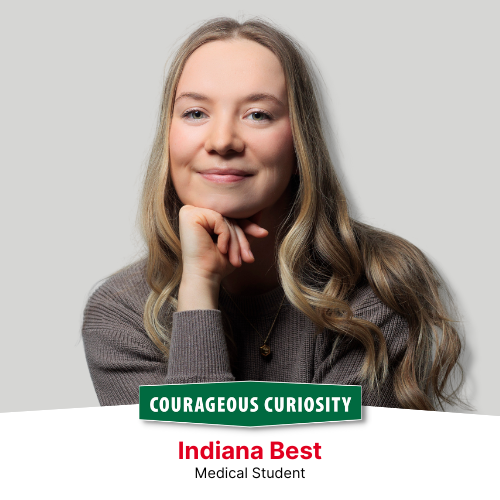
Journey of a seed: Academic and personal learnings through a Métis lens
Throughout her time in the Master of Public Health program, Indiana Best conducted research on integrating Métis-specific culture into addiction treatment programming. The resulting framework, titled ‘Journey of a Seed’, outlines Métis values such as history, kinship, culture, and identity, serving as a guide for treatment programs. While initially designed for addiction treatment, Indiana came to discover, after a profound and unexpected loss, that the framework's applicability extends to a multitude of other challenges. Through a personal adaptation of the Journey of a Seed framework, Indiana navigates and reaffirms her own identity as a Métis community member and medical student, fostering resilience based on the framework’s guiding principles.
Indiana Best is a proud Métis woman and a second-year medical student in the University of Saskatchewan (USask) College of Medicine. Born and raised in Alberta, she completed her undergraduate degree in health sciences at the University of Calgary before relocating to Saskatoon to pursue her Master of Public Health. Her keen interests in population health and working alongside the Métis community led her to pursue research that integrated Métis culture within addictions treatment programming. Indiana aims to integrate her understanding of patient-centered care and Indigenous health perspectives into her medical school education. She is motivated to bridge the gap between Western medicine and Indigenous traditions, recognizing the profound importance of cultural inclusivity in healthcare.
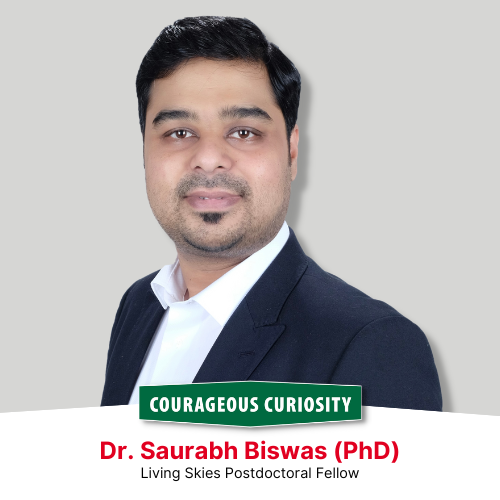
Unpacking co-production and its possibilities: Why solving sustainability problems is both a science and an art
Sustainability problems are ‘wicked’ – a complex web of social, environmental, economic, and technological challenges that are constantly changing. Unforeseen challenges plague many promising technologies and programmatic solutions to sustainability problems, falling short on predicted outcomes and deviating from planned trajectories. A paradigm shift is therefore required, by moving the emphasis of solutions from prediction to anticipation and adaptability. Co-production, a modality of producing knowledge collaboratively and tackling multiple outcomes of planned actions, offers a strategic edge for designing solutions. Co-production enables the interaction of scientific rigor with societal collaborations, demystifying the nature of sustainability problems and designing appropriate, inclusive solutions. Examples from urban and rural contexts around the world illustrate opportunities, challenges, and barriers to co-producing sustainability solutions.
Dr. Saurabh Biswas (PhD) is a sustainability scientist and energy systems engineer studying human well-being, sustainable development, and infrastructure systems. He has collaborated with community organizations, grassroots entrepreneurs, university partners and international development agencies in seven countries to investigate interlinkages of renewable energy and local sustainable development. Saurabh is currently a Living Skies Postdoctoral Fellow with the Community Appropriate Sustainable Energy Security (CASES) initiative at the University of Saskatchewan (USask). Earlier, he was a scientist at the Pacific Northwest National Laboratory, conducting research on just and equitable energy transitions for the US Department of Energy. Biswas works on projects ranging from sustainable energy infrastructures in cities, to energy security and local sustainable development in rural and indigenous communities. Biswas is a co-founder of the open knowledge repository on community energy initiatives ‘Let Communities Lead’. He holds a PhD in Sustainability from Arizona State University and is a recipient of several research fellowships including from the United States Agency for International Development (USAID) and the Research Council of Norway.
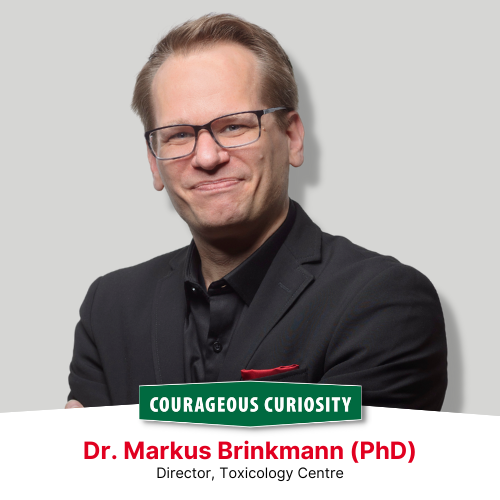
Wastewater renaissance: A deep-dive into uncharted waters
When you hear “There must be something in the water”, using wastewater to diagnose the health of entire populations is likely not the first thing that comes to mind. This approach, known as wastewater surveillance, is not new but saw a global renaissance during the COVID-19 pandemic to track community spread of the virus. This renewed interest unlocked a treasure trove of public health information – from the use of anti-depressants to red meat consumption, from obesity rates to toxic street drugs – conveniently delivered to the laboratory by the municipal sewer system. But while the opportunities seem endless, we must be aware of potential ethical dilemmas when the lines between public health interests and privacy rights begin to blur.
Dr. Markus Brinkmann (PhD) is an associate professor and the Centennial Enhancement Chair in Mechanistic Environmental Toxicology in the School of Environment and Sustainability at the University of Saskatchewan (USask), the director of the university’s world-renowned Toxicology Centre, and a member of the Global Institute for Water Security. He is an award-winning toxicologist whose academic journey has focused on the exploration of environmental contaminants, including those that are discharged through municipal wastewater, and their impacts on environmental and human health.
Brinkmann earned his PhD from Aachen University in Germany and came to USask in 2016 as a Banting Postdoctoral Fellow. Since receiving his first academic appointment at USask in 2018, he has coordinated several large-scale interdisciplinary and international collaborations, many of which focused on urban water systems.
When the COVID-19 pandemic hit Saskatchewan in 2020, Brinkmann could not just watch from the sidelines. He and his colleagues came together to contribute with their expertise to the development and application of methods for wastewater-based surveillance of the virus. Together with his team, he led the Public Health Agency of Canada’s surveillance efforts in Saskatchewan, provided weekly updates to the public through an online dashboard, and gave over 300 interviews in print and online media, radio, and television.
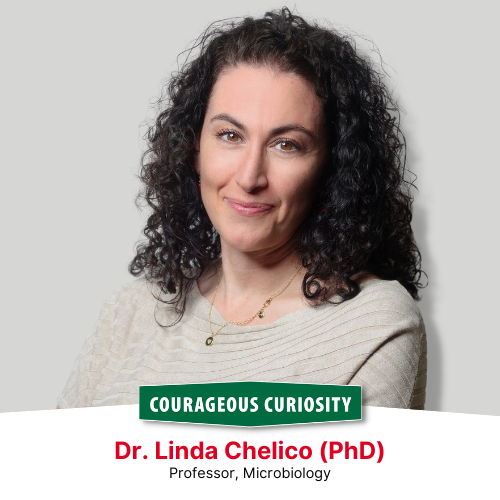
Embracing change: For better or worse, it's in our DNA
DNA carries the code for carrying out biological life, yet DNA is an unstable molecule. These two descriptions of DNA seem at odds with each other, especially when the prevailing view in media promotes that humans carry a stable genetic code throughout their lifetime. The reality is that DNA in all organisms is in a dynamic state with its environment, constantly becoming damaged and undergoing processes for damage reversal and repair. Sometimes, those processes are not exact, and sometimes to combat infection, DNA is purposefully altered. These processes result in mutations. Mutations readily appear in microorganisms as an adaptive advantage, enabling bacteria, viruses, or fungi to become resistant to pharmaceuticals or immune responses. These organisms have proteins that purposefully induce DNA mutations in times of stress. While humans share similar proteins, a surprising discovery over 20 years ago showed that humans have additional proteins in our cells that specialize in mutating DNA. The benefit of these specialized pro-mutagenic proteins is still being understood, as are the risks. While these proteins have multiple benefits in immunity, they also pose a risk that presents as cancer.
Dr. Linda Chelico (PhD) is a professor in the Department of Biochemistry, Microbiology, and Immunology. Her research spans biochemistry, virology, and cancer biology. She earned her PhD in 2004 from the University of Saskatchewan (USask), specializing in the study of DNA repair in fungi. It was then that Chelico became amazed at the potential of mutations in DNA for an organism’s adaptability. Chelico then completed postdoctoral training at the University of Southern California with Myron F. Goodman, who studies multiple mutation-inducing polymerases in bacteria. While she thought she would work on that topic, instead she worked on a new protein family that was discovered shortly before her arrival. Chelico brought this expertise to USask in 2009. The protein family her lab studies purposefully induces mutations as part of the immune response in humans. Chelico was the first to purify and characterize multiple proteins from this newly discovered family. Her expertise in this domain is sought after by multiple international scientists with whom she collaborates. Her research is funded by multiple granting agencies in Canada and the USA and she is routinely invited to give lectures on her work.

Great design goes beyond empathy
After recently purchasing her first iPhone, Akshara Dash was delighted to see that Apple's built-in health app contained an extensive menstrual cycle tracker. She felt seen, alongside millions of other users. It was inclusive.
That's one of the biggest metrics in determining whether a product is successful: Do humans feel seen when they use it? The products we use today are shaped by the people who had a vision for the future. With inclusion and creativity built into the heart of the design process, we can shape the future.
Let's design the future together.
Akshara Dash is a product designer and an Interactive Systems Design student at the University of Saskatchewan (USask). At 22, she is the youngest TEDxUniversityofSaskatchewan 2024 speaker.
Dash found her calling for digital product design at 19 when she started the first user experience design student club in USask's Department of Computer Science, connecting and educating students and professionals in the field.
Across her time at USask, Dash has won over $16,000 in scholarships and hackathons, including the Zu Award for Women in Technology and Community Service and the Nasser Family Award. She is a strong advocate for inclusive and accessible design, and has worked on several initiatives to advance these causes including a project with the Saskatchewan Poverty Reduction Partnership to re-imagine public washrooms in Saskatoon. Upon graduation, Dash aims to work as a product designer and to continue learning new things about herself and the world around her every day.
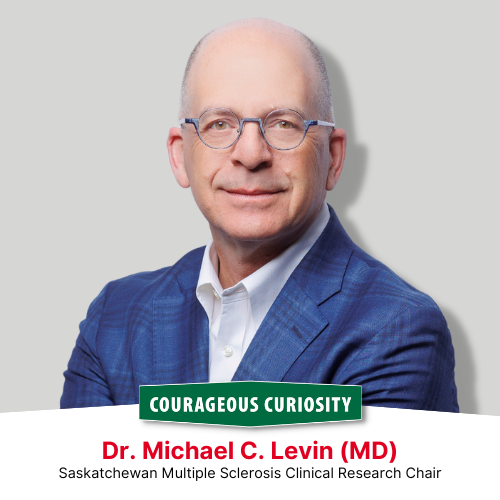
Breakthrough discovery leads to new drugs designed to stop MS and ALS in their tracks
Most persons living with multiple sclerosis (MS) and amyotrophic lateral sclerosis (ALS) continue to get worse. Researchers and healthcare providers don’t know why, or how to stop it. Although the two diseases are different, they share the common feature of nerve cell loss in the brain and spinal cord. Our research team has discovered how nerve cells like these are damaged, and designed new drugs to stop nerve cell loss and encourage their regeneration! By stopping nerve cell loss and promoting their recovery, we believe we can stop MS and ALS in their tracks, improving the lives of persons living with these devastating diseases.
Dr. Michael C. Levin (MD) is the Saskatchewan Multiple Sclerosis (MS) Clinical Research Chair and Professor of Neurology at the University of Saskatchewan (USask) College of Medicine. An MS specialist and neuroscientist, Levin has been caring for persons living with MS and conducting research into the cause and treatments for MS for most of his career.
He earned his BS in Chemistry at George Washington University and an MD at Pennsylvania State University. Levin was chief neurology resident at the Weill New York Hospital/Cornell Medical Center – Memorial Sloan Kettering Cancer Center, received neuroscience training at The Salk Institute and completed his MS post-doctoral fellowship at the National Institutes of Health.
At the University of Tennessee Health Science Center, he was professor, Chief of the Neurology Service at the Memphis Veterans Affairs Medical Center, led the MS clinic and performed research on RNA binding proteins in MS. His work has been published in top journals including The New England Journal of Medicine, Nature Medicine, Annals of Neurology, Glia, and Journal of Neuroscience Research. Dr. Levin and his team have received more than 100 awards for academic excellence. He is editor of the Neurology Section of the Merck Manual, on the Medical Advisory Committee of MS Canada and honored as one of the ‘Best Doctors in America’.
Dr. Levin is married to his lovely wife of more than 30 years, Dr. Audrey Zucker-Levin, has two strappingly handsome sons and is an avid sailor and scuba diver.
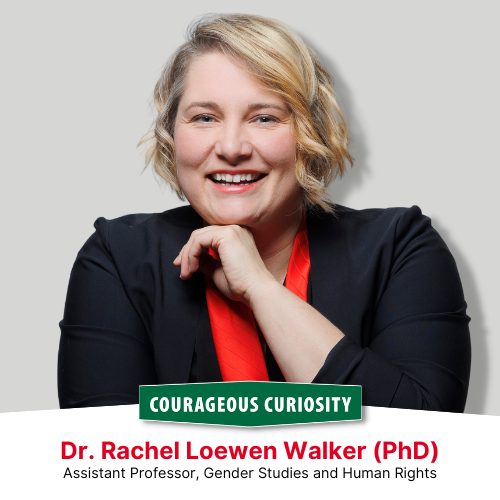
Building queer futures
We stand at a pivotal moment for 2SLGBTQ+ rights in North America, balancing between heightened tensions and increased belonging and acceptance at all levels. Recent setbacks in the US and Canada underscore the fragility of human rights, but instead of expecting a future that is the same as the present, what does it look like to imagine a world where comprehensive gender-affirming care exists, where gender and sexual diversity are a welcome part of the human experience. By taking a “leap” into the future, I call for a transformed social imaginary that places queer, trans, and Two Spirit communities at society's core, urging us to recognize not just opportunities, but our responsibilities in shaping brighter tomorrows.
Dr. Rachel Loewen Walker (PhD) (she/her) is an assistant professor and the program chair of the Women's and Gender Studies program, in Political Studies at the University of Saskatchewan (USask). She also teaches on the topics of equity, diversity, and human rights in the College of Law. Prior to this she was the Executive Director of OUTSaskatoon, a 2SLGBTQ+ community centre for almost seven years where she started Pride Home, a long-term, 2SLGBTQ+ group home and worked with 2SLGBTQ+ leaders across Canada to develop The Enchanté Network, a national organization that aims to build the capacity and reach of Two Spirit and LGBTQ Centres country-wide.
In all of her work, Loewen Walker aims to open up spaces for social change, cultural diversity, and greater collaboration across non-profit, university, governmental, and other spheres. One way that she does this is through the Social Innovation Lab on Gender and Sexuality, an interdisciplinary, community-led knowledge mobilization hub, that works with students, community organizations, and researchers to action projects for community partners. Loewen Walker's work in the lab and other spaces focuses on queer theory, feminist theory, human rights and social justice, as well as non-profit leadership and governance, policy analysis, and organizational theory.
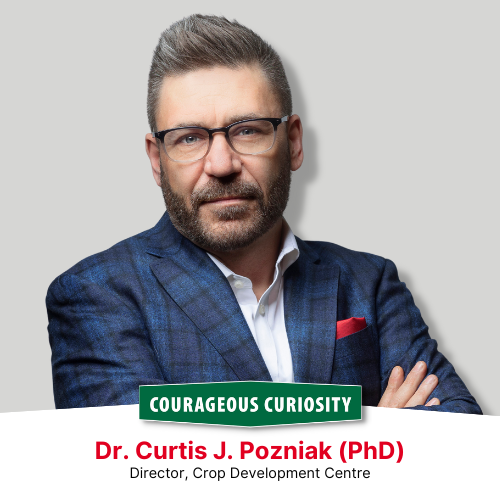
Feed the future – Creating the seed varieties that grow into food security
Food is essential to our survival, and it all starts with a seed. At the University of Saskatchewan (USask) Crop Development Centre, we create seed varieties that farmers grow into food – food that brings people together. Our work is bold and deliberate as we craft new crop varieties that turn a seed into food security, health, and sustainability for our planet. Seed varieties are integral to producing more food with less inputs, all while protecting and rejuvenating our agricultural ecosystems. We apply cutting-edge technologies to discover and combine traits that mitigate threats to productivity like drought, heat, and continually evolving pathogens and pests. Through collaboration, we develop safe, nutritious, and climate-resilient crop varieties which thrive in sustainable agricultural production systems. Together, we will explore how science is delivering the next generation of seed varieties to farmers to ensure a resilient future for our food systems.
Dr. Curtis Pozniak (PhD) is a professor and wheat breeder at the University of Saskatchewan’s (USask) Crop Development Centre (CDC), where he has been a faculty member since 2002. In July 2020, he was appointed Director of the CDC. He earned a Bachelor of Science in Agriculture (1999) and a PhD (2002) in plant genetics and breeding from USask. Pozniak’s research program spans the continuum from the basic to applied. Since 2004, he has released 17 wheat cultivars, several of which are popular among western Canadian wheat growers. He has received well over $140 million in research funding and has led or co-led five large-scale Genome Canada funded grants aimed to sequence and annotate the genomes of wheat and its relatives. He is a leader in the application of genomic technologies to wheat breeding and has published over 170 manuscripts in this area. In 2010, Pozniak was named the Most Outstanding Young Researcher at USask, and was bestowed the honor of Outstanding Agronomist by the Canadian Society of Agronomy. He received an Award of Innovation from the City of Saskatoon in 2014, the College of Agriculture Research Excellence Award in 2015 and the International Wheat Genome Sequencing Consortium Leadership Award in 2019. He has been named one of Canada’s Top 20 Seed Industry Influencers, and in 2023, he received the prestigious Queen Elizabeth II Platinum Jubilee Medal for service to agricultural science.
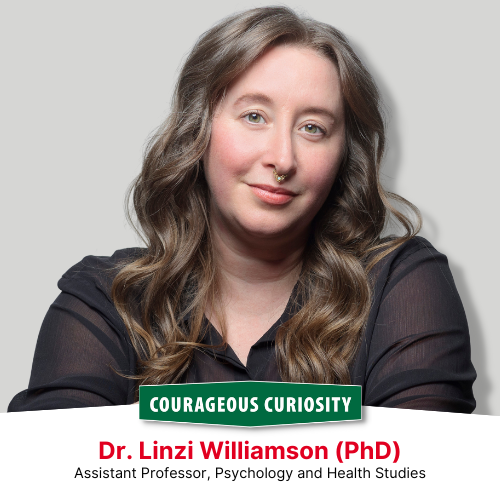
Enriching our pets’ lives
Enriching the lives of animals can benefit humans.
The research evidence is clear that companion animals, or pets, can provide many benefits for human mental and physical health. The concept of the human-animal bond suggests that pets can also benefit from relationships with humans. But given the degree of control humans have over their lives and environment, the needs of pets are not always adequately met. By recognizing their sentience, or emotional and cognitive capacities, and meeting their species-specific needs, we can improve the well-being of our pets. In turn, we can enhance our animal-human relationships and bonds.
As a social psychologist, anthrozoologist, program evaluator, and co-founder of the Pawsitive Connections Lab, Dr. Linzi Williamson (PhD, CE) is dedicated to helping people improve their relationships with humans and animals. She is the Principal Investigator of a Canadian Institutes of Health Research Patient-Oriented Research project entitled “Supporting Canadian Veterans with Service Dogs” which is co-led by a committee of patient partners, including former service members (i.e., veterans) with posttraumatic stress disorder, service dog trainers, and experts on animal-human interactions. The goal of this research is to highlight the social value of service dogs for veterans, educate the public on interacting with service dog teams, and develop ways to optimize the animal-human bond. In recognition of her service, Linzi received a St. John Ambulance Provincial Certificate of Thanks as a member of the PAWS Your Stress Therapy Dog Research Team during the COVID-19 pandemic, and a Queen Elizabeth II Platinum Jubilee Medal for her ongoing work with AUDEAMUS Service Dogs. Never in her wildest dreams did Linzi imagine blending her love of research and dogs, but somehow, it has all come together. Outside of work, she devotes her time to training and enriching the life of her Australian Cattle Dog, Steve Irwin. You can follow Steve’s adventures and learn more about him on Instagram @heeler_steve. You can also learn more about Linzi’s research on her personal and lab websites (www.linziwilliamson.com & pawsitiveconnectionslab.com).

PERFORMANCE: Reservoirs of quiet
Is music entirely limited to human-developed creations and performances? To answer this question, we are exploring the connection and equality between human-developed and natural music, immersing the audience in the interaction between performer and natural soundscape. Experience calm, contemplative music combining natural music and response from guitar and keyboard. Notice — or notice again — the beauty of our natural world, and consider the typically one-sided nature of our relationship with our natural world during reservoirs of quiet.
Spencer Krips is an in-demand Saskatoon-based composer and performer, whose works have been performed across North America. Krips studied Music Education at the University of Saskatchewan (USask), where he was actively involved with the USask Jazz Ensemble, Wind Orchestra, and Greystones Singers. During his studies, Krips performed with the Carn Davidson 9, the Saskatoon Symphony Orchestra, and the Saskatoon Jazz Orchestra. He is also one of the guitarists in Saskatoon-based band Checkout Queens, who released their debut EP on October 20, 2023.
Krips' compositions have been performed across North America, including notable performances by the University of Toronto Hart House Jazz Ensemble and the Kansas State University Concert Band. His 2021 album behold, the sonic universe explored the relationship between nature, performer, and listener, and was nominated for three Saskatchewan Music Awards.
Stay in the know
Subscribe to Discovery Digest for updates about TEDxUniversityofSaskatchewan.

